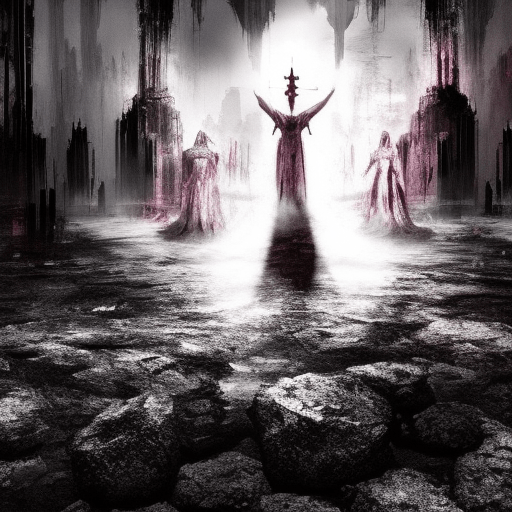Summary:
In Arthur Miller’s play, “The Crucible: A Play in Four Acts,” the town of Salem, Massachusetts is consumed by hysteria and paranoia as a group of young girls accuse innocent people of witchcraft. As the accusations escalate, the town is torn apart by fear, lies, and the desire for power. Through the lens of the Salem Witch Trials, Miller explores themes of mass hysteria, the abuse of power, and the importance of integrity.
The Hysteria of Witchcraft Accusations
“The Crucible” takes place in 1692, during a time when the Puritan community in Salem is deeply religious and highly superstitious. When a group of girls is caught dancing in the woods, they claim to have been possessed by the devil and begin accusing others of witchcraft. Fear spreads like wildfire, and the entire town becomes consumed by hysteria. People are arrested, tried, and executed based on the girls’ accusations, regardless of evidence or reason. The play highlights how fear and paranoia can lead to the destruction of innocent lives.
The Abuse of Power
One of the central themes in “The Crucible” is the abuse of power. The trials provide an opportunity for individuals to gain power and settle personal vendettas. Judge Danforth, the deputy governor, becomes the ultimate authority in determining guilt or innocence. He is driven by his desire to maintain order and protect the reputation of the court, even at the expense of innocent lives. The play also explores the power dynamics between men and women, as women are particularly vulnerable to accusations and manipulation. The abuse of power in “The Crucible” serves as a cautionary tale about the dangers of unchecked authority.
The Importance of Integrity
Integrity is a recurring theme in “The Crucible.” The protagonist, John Proctor, is a flawed but honorable man who values his reputation and integrity above all else. As the witch trials escalate, Proctor finds himself torn between protecting his family and preserving his integrity. Ultimately, he chooses to speak out against the corruption and lies, even if it means sacrificing his own life. Proctor’s refusal to compromise his principles serves as a powerful example of the importance of standing up for what is right, even in the face of adversity.
- Key Takeaways:
- The play explores the destructive power of mass hysteria and the consequences of false accusations.
- It highlights the abuse of power and the dangers of unchecked authority.
- The importance of integrity and standing up for what is right, even in the face of adversity, is a central theme.
“Because it is my name! Because I cannot have another in my life! Because I lie and sign myself to lies! Because I am not worth the dust on the feet of them that hang! How may I live without my name? I have given you my soul; leave me my name!”
“The Crucible: A Play in Four Acts” serves as a powerful allegory for the McCarthy era in the United States, during which many innocent people were accused of being communists. Through its exploration of mass hysteria, the abuse of power, and the importance of integrity, the play reminds us of the dangers of allowing fear and lies to dictate our actions. It serves as a timeless reminder to question authority, stand up for justice, and protect our own integrity, even in the most challenging of circumstances.












